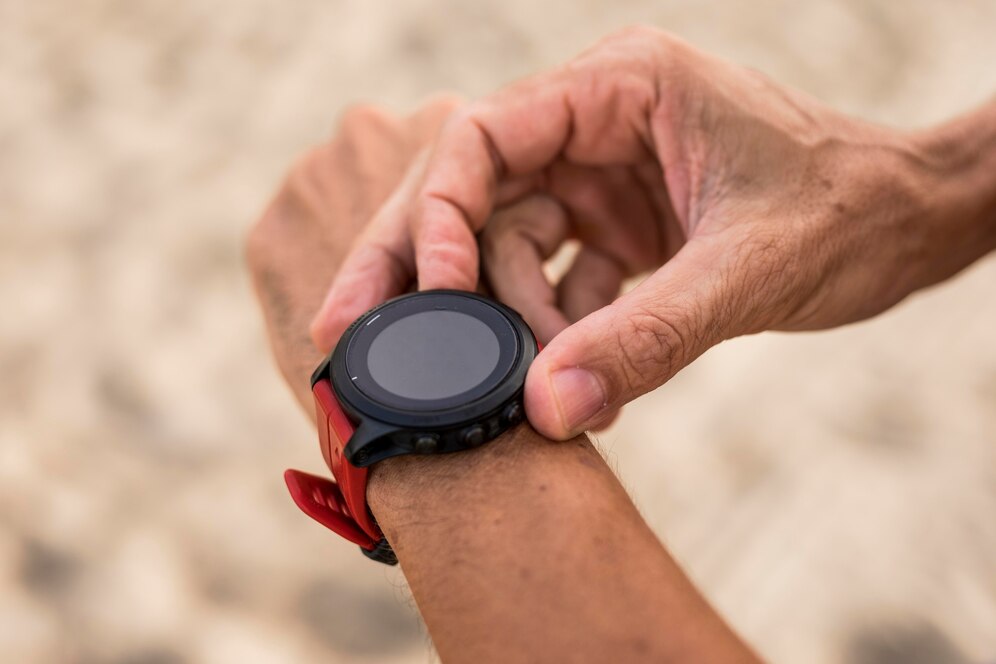How a tiny device on your wrist can help you breathe easier, sleep better, and stay calm.
Smartwatches have become more than just step counters and notification hubs. Increasingly, they’re evolving into powerful tools for health—especially mental health. One of the most underrated features of today’s wearables? Their ability to help you manage stress in real time.
If you’re feeling overwhelmed, anxious, or just off your game, your smartwatch might be your best ally. Here’s how to turn it into your personal stress coach.
How Smartwatches Track Stress
Modern smartwatches—like the Apple Watch, Fitbit, Garmin, and Galaxy Watch—can detect signs of stress by monitoring changes in your body’s physiology. Here’s what they’re tracking:
1. Heart Rate Variability (HRV)
HRV measures the variation in time between heartbeats. A higher HRV usually indicates better adaptability to stress, while a lower HRV suggests your body might be under strain. Your smartwatch can detect this and alert you to subtle changes before you even feel them.
2. Resting Heart Rate
An unusually high resting heart rate can be a sign of stress, fatigue, or illness. Regular tracking gives you insight into trends and potential red flags.
3. Sleep Quality
Poor sleep and high stress go hand-in-hand. Many smartwatches break down your sleep stages and flag patterns that might be affecting your mood and energy.
4. Breathing Patterns
Some watches even monitor your breathing rate, detecting shallow or irregular breaths—a common sign of anxiety or acute stress.
Features That Help You Destress
The real magic happens when your watch doesn’t just track your stress—but helps you deal with it. Here’s what to look for:
1. Guided Breathing Exercises
Many smartwatches come with built-in breathing sessions that guide you through slow, deep breaths to help regulate your nervous system.
-
Apple Watch: The Mindfulness app encourages a few minutes of focused breathing.
-
Fitbit: Offers guided sessions that adapt to your heart rate.
-
Garmin: Includes respiration tracking and breathing reminders.
Even 60 seconds can make a noticeable difference in your calmness and clarity.
2. Mindfulness Reminders
You can set gentle nudges throughout the day reminding you to pause, stretch, or breathe. Over time, this conditions your brain to check in with itself more often—before stress spirals.
3. Stress Tracking Scores
Fitbit’s “Stress Management Score” or Garmin’s “Body Battery” combine different metrics (sleep, activity, HRV) to give you an overall stress rating. This helps you know when to push and when to rest.
4. Sleep Coaching
If stress is sabotaging your sleep, features like sleep coaching or bedtime reminders can nudge you toward better nighttime habits, which in turn reduce your stress resilience the next day.
5. Activity Alerts
When stress spikes, your watch might encourage you to go for a short walk. Movement—especially outdoors—is one of the quickest ways to shift your mental state.
Pro Tips: Make the Most of Your Watch’s Stress Tools
✅ Customize Notifications
Set alerts for moments when your stress might typically rise (meetings, commutes, mid-afternoon slumps) so your watch can remind you to take a breath—or simply check in.
✅ Start and End Your Day With Intention
Use your watch to launch a short breathing or meditation session in the morning or evening. It helps center your mind and create boundaries between work and rest.
✅ Pair It With a Mindfulness App
Apps like Calm, Headspace, and Insight Timer offer smartwatch integration for quick access to meditations, soundscapes, or mindful movement breaks.
✅ Don’t Ignore the Data
If your HRV is dropping and your resting heart rate is climbing, listen to what your body’s saying. Use that data as a cue to slow down, sleep more, hydrate, or step away from the screen.
The Mental Health Edge of Wearables
Mental health tech is often overlooked in the conversation about smartwatches. But as we learn more about the mind-body connection, wearables are becoming essential tools for daily emotional regulation. They give us a mirror—not just for our physical activity, but for our inner state.
And in a world that’s always pushing you to do more, having a device that reminds you to pause, breathe, and check in? That’s powerful.
It’s Not Just a Watch—It’s a Wellness Companion
Your smartwatch won’t eliminate stress, but it can help you manage it smarter. With built-in awareness tools and gentle nudges, it can shift your response from reactive to reflective.
So next time you feel tension creeping in, glance at your wrist—and give yourself permission to slow down.

